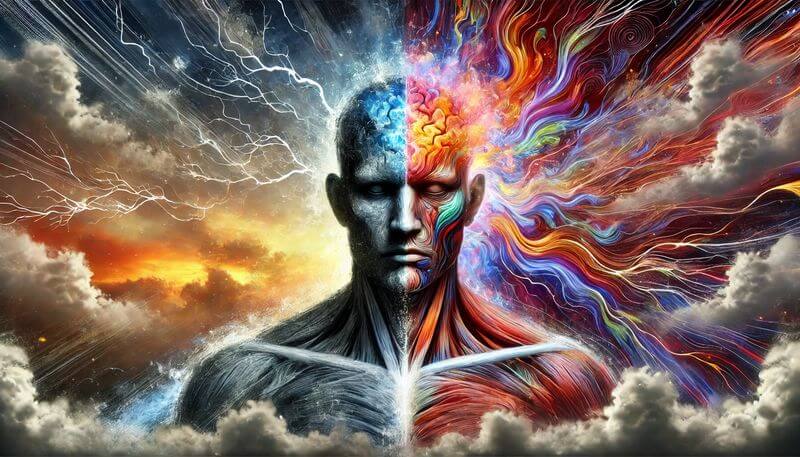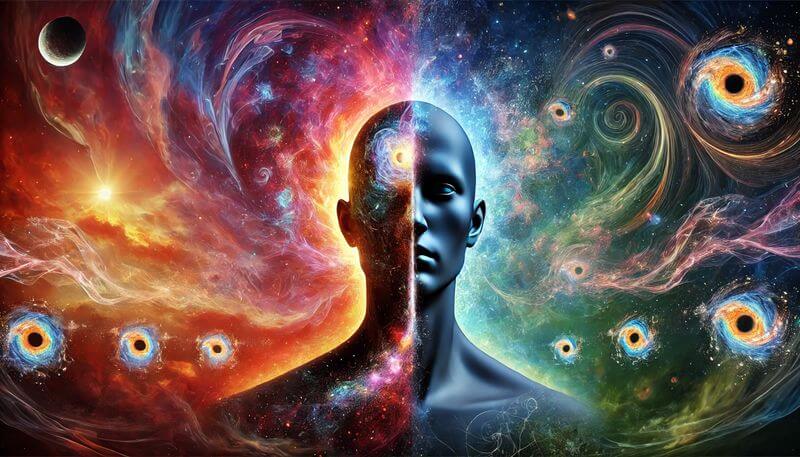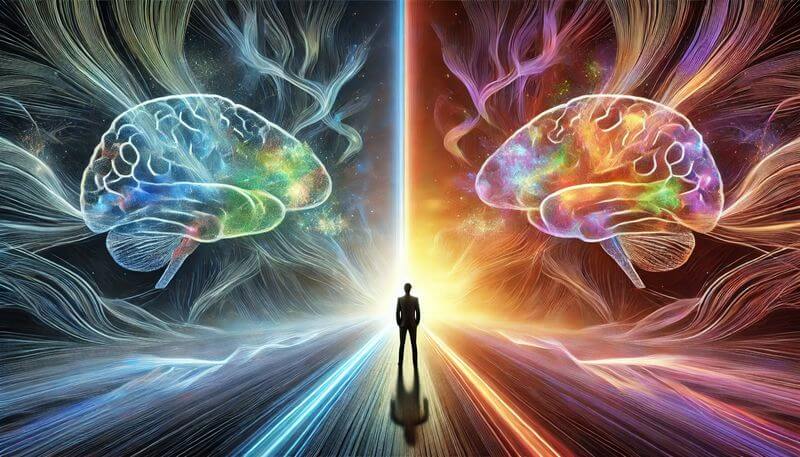Cognitive dissonance is a psychological phenomenon that occurs when an individual experiences discomfort due to conflicting beliefs, attitudes, or behaviors. This internal tension often compels individuals to resolve the inconsistency, profoundly influencing their decision-making processes.
How can cognitive dissonance impact decision-making?
For instance, when someone makes a choice that contradicts their values—like purchasing an expensive item despite believing in frugality—they might justify the decision by emphasizing the product’s quality or uniqueness.
Such rationalizations aim to restore harmony between conflicting elements. Understanding this dynamic is crucial because it reveals how emotions and self-perception can steer choices, sometimes against logic or external evidence. Recognizing these tendencies can empower individuals and businesses alike to foster more thoughtful and balanced decision-making.

Examples of cognitive dissonance in everyday life
This common psychological occurrence subtly impacts our daily decisions and interactions. This mental discomfort arises when our beliefs, behaviors, or attitudes clash, leading us to seek ways to reconcile the inconsistency. Below are compelling examples of how inner conflict manifests in everyday life:
- Healthy Eating vs. Junk Food Cravings. Many people aim to maintain a healthy diet but occasionally indulge in fast food or sweets. Afterward, they might justify the indulgence by thinking, “I’ve been eating well all week, so this is my reward,” or “I’ll work out tomorrow to make up for it.”
- Environmental Awareness vs. Convenience Choices. A person passionate about environmental conservation might use plastic bags or order items with excessive packaging. To resolve the tension, they may reason, “It’s just this once,” or “I’ll recycle the packaging later.”
- Spending Habits vs. Budgeting Goals. Splurging on a luxury item while adhering to a strict budget often creates internal conflict. To alleviate this discomfort, someone might rationalize, “This sale is too good to miss,” or “It’s an investment in quality.”
- Work-Life Balance vs. Overworking. While valuing work-life balance, professionals might find themselves taking on extra tasks after hours. They might reconcile this by thinking, “This is just a short-term sacrifice for a long-term goal,” or “I need to prove my dedication to my boss.”
- Social Relationships vs. Personal Opinions. Imagine disagreeing with a close friend but pretending to align with their viewpoint to avoid conflict. Later, one might rationalize, “It wasn’t worth the argument,” or “They were too stressed to handle a disagreement.”
These scenarios illustrate the human tendency to adapt beliefs or justify behaviors to minimize psychological discomfort. Recognizing inner conflict in your life can help you make more conscious, authentic decisions.
How can one resolve cognitive dissonance effectively
It can feel like an invisible tug-of-war within the mind, creating tension when our actions, beliefs, or attitudes don’t align. Resolving this discomfort is key to maintaining mental harmony and making authentic decisions. Here are some practical strategies to address tension effectively:
- Reevaluate Your Beliefs. Sometimes, the conflict arises because one belief may no longer serve you. Reflect on whether your views align with your current values or if they need adjustment.
- Change Your Behavior. Aligning actions with your values can reduce conflict. For instance, if you value health but skip workouts, start with small, consistent efforts to integrate exercise into your routine.
- Seek New Information. Research or consult experts to clarify conflicting beliefs. This can help you solidify one perspective and discard the less relevant or inaccurate one.
- Acknowledge Your Emotions. Accept the discomfort as a natural part of growth. Understanding why you feel dissonance can provide insight into your deeper motivations.
- Practice Self-Compassion. Instead of harshly judging yourself, acknowledge the complexity of being human. Give yourself grace as you navigate and resolve these internal conflicts.
By addressing cognitive dissonance consciously, you can foster personal growth, make better decisions, and live more authentically.

What role does cognitive dissonance play in social psychology?
This is a cornerstone concept in social psychology, highlighting the tension people feel when their beliefs, actions, or attitudes conflict. This psychological phenomenon explains behaviors such as rationalizing questionable decisions or justifying contradictions in group dynamics. It underscores how individuals strive for internal consistency, often reshaping attitudes to align with actions or group norms. Cognitive dissonance also plays a key role in understanding persuasion, attitude change, and the impact of societal pressures. By exploring this concept, social psychologists gain valuable insights into decision-making, conformity, and how humans navigate the complexities of interpersonal and societal relationships.
Long-term effects of unresolved cognitive conflict
Unresolved inner conflict can have profound long-term effects on both mental and emotional well-being. When individuals consistently avoid addressing conflicting beliefs, behaviors, or attitudes, this inner tension may evolve into chronic stress. Over time, this stress can lead to anxiety, irritability, or even depression, as the mind struggles to reconcile contradictions.
Furthermore, unresolved conflict can damage self-esteem. People may feel hypocritical or untrustworthy, eroding their confidence and sense of integrity. Relationships may also suffer, as inconsistencies in beliefs or actions create misunderstandings or distrust among peers, family, or colleagues.
On a broader scale, cognitive dissonance can limit personal growth. Avoiding difficult realizations or necessary changes prevents individuals from adapting, learning, and evolving. For example, clinging to outdated beliefs despite evidence to the contrary stifles open-mindedness and intellectual development.
Addressing mental tension isn’t just about achieving peace of mind; it’s about fostering authenticity and resilience. By facing and resolving internal conflicts, individuals can mitigate the harmful ripple effects and cultivate a healthier, more congruent life.

Can cognitive dissonance lead to better decision-making in the long run?
Cognitive dissonance, while often uncomfortable, can serve as a catalyst for improved decision-making over time. The tension it creates forces individuals to confront contradictions between their beliefs and actions. When addressed constructively, this process encourages reflection, self-awareness, and growth.
For instance, a person who values health but leads a sedentary lifestyle might feel dissonance. Instead of avoiding the discomfort, they could use it as motivation to align their actions with their goals, such as adopting an exercise routine. Over time, this alignment not only resolves the dissonance but also leads to better decisions that support their long-term well-being.
Moreover, cognitive dissonance challenges rigid thinking. It compels individuals to reassess outdated beliefs, fostering adaptability and critical thinking. In social contexts, it can enhance empathy, as individuals work to reconcile personal views with differing perspectives.
While unresolved conflict can hinder progress, addressing it effectively transforms inner conflict into a powerful tool for growth. By learning to navigate these moments of discomfort, individuals build resilience and improve their capacity for making thoughtful, deliberate decisions.
How to develop more awareness of cognitive dissonance
Contradictory beliefs often operates subtly, influencing decisions and behaviors without conscious recognition. Developing awareness of this psychological phenomenon can empower you to make more authentic and aligned choices. Here’s how to sharpen your understanding:
- Recognize Emotional Discomfort. Pay attention to feelings of unease or inner conflict. This discomfort often signals a disconnect between your actions and beliefs.
- Identify Contradictions in Thoughts and Actions. Reflect on your decisions. Are there instances where your behavior doesn’t align with your stated values or beliefs? For example, claiming to prioritize health while skipping workouts may indicate dissonance.
- Question Automatic Justifications. Notice when you rationalize behavior to minimize guilt or discomfort. Statements like “It’s just this once” or “I had no other choice” may reveal attempts to reconcile conflicting thoughts.
- Seek Honest Feedback. Engage trusted friends or mentors to highlight inconsistencies you may not see. External perspectives can provide valuable insights.
- Practice Mindfulness. Mindfulness encourages present-moment awareness, helping you notice dissonant thoughts or behaviors as they arise. Journaling can further aid in unpacking these conflicts
- Educate Yourself on Cognitive Dissonance. Understanding the theory and its implications deepens your ability to spot it in real-time.
Awareness is the first step toward resolving inner conflict. By cultivating self-reflection and mindfulness, you can uncover these inner conflicts and address them with intention, paving the way for greater mental clarity and personal growth.
What are the neurological effects of mental conflict?
Cognitive dissonance doesn’t just influence thoughts and emotions; it also impacts the brain on a neurological level. Studies using brain imaging reveal that experiencing inner conflict activates regions like the anterior cingulate cortex (ACC) and prefrontal cortex, which are responsible for decision-making, error detection, and emotional regulation. These areas work overtime to resolve the psychological discomfort caused by conflicting beliefs or actions.
When it occurs, the brain essentially enters a state of heightened activity, attempting to reconcile the inconsistency. This process often releases stress-related hormones like cortisol, which can, over time, lead to feelings of anxiety or tension if unresolved. Conversely, resolving dissonance by aligning actions and beliefs activates reward pathways, providing a sense of relief and satisfaction.
Understanding these neurological effects highlights how deeply mental conflict intertwines with our mental and physical well-being, making its resolution vital for overall health.

How does cognitive conflict contribute to groupthink?
Cognitive dissonance plays a pivotal role in fostering groupthink by pressuring individuals to conform to group norms to avoid internal conflict. When personal beliefs clash with the collective opinion, members often suppress dissenting views to maintain harmony and reduce discomfort. This avoidance of confrontation can lead to flawed decision-making, as critical perspectives are sidelined. Over time, the need to align with the group reinforces a cycle of unquestioned agreement, stifling innovation and rational debate. Understanding this connection is key to breaking free from groupthink and encouraging a culture of open, critical discussion.
Can cognitive dissonance be beneficial for personal growth?
Though uncomfortable, it can be a powerful catalyst for personal growth. When faced with conflicting beliefs or behaviors, the internal tension forces self-reflection. This introspection often leads to reassessing values, adopting new perspectives, or aligning actions with core principles. For instance, recognizing inconsistencies between one’s lifestyle and goals can inspire meaningful changes, such as healthier habits or improved relationships.
Embracing cognitive dissonance as an opportunity for growth transforms inner conflict into a stepping stone for lasting self-improvement.

This Post Has 3 Comments
I discovered your blog site on google and check a few of your early posts. Continue to keep up the very good operate. I just additional up your RSS feed to my MSN News Reader. Seeking forward to reading more from you later on!…
Awesome blog! Do you have any tips for aspiring writers? I’m planning to start my own blog soon but I’m a little lost on everything. Would you propose starting with a free platform like WordPress or go for a paid option? There are so many options out there that I’m completely overwhelmed .. Any suggestions? Appreciate it!
Start with a free platform